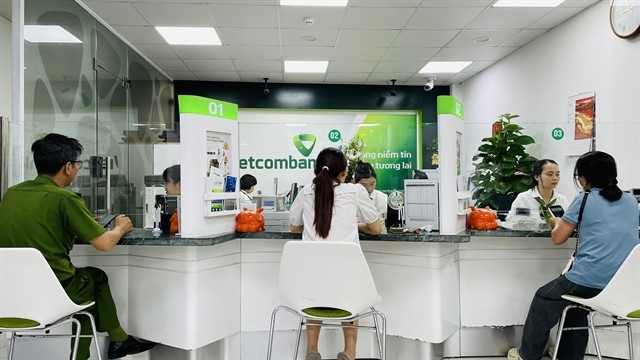Despite low interest rates, bank deposits have reached a new historic peak of VNĐ16 quadrillion (US$628.5 billion) as of the end of March, according to the latest data from the central bank.

Despite low interest rates, bank deposits have reached a new historic peak of VNĐ16 quadrillion (US$628.5 billion) as of the end of March, according to the latest data from the central bank.
Of this amount, citizens’ deposits reached an unprecedented VNĐ6.676 quadrillion, a rise of VNĐ39 trillion from February and 2.2 per cent from the end of 2023.
Meanwhile, corporate deposits were down 3.1 per cent at VNĐ6.6 quadrillion.
The reversal of declining interest rates, which began in March last year, has led many banks to start to raise deposit interest rates since May.
Analysts expect a rise in deposit interest rates by 0.5 to 1 percentage point, reaching around 7 per cent per year in the second half of the year.
However, the rates are unlikely to return to the high levels seen at the end of 2022, following a bank run incident that resulted in a private lender being placed under central bank control.
Credit growth has only reached 2.4 per cent this year, failing to meet the targets of 5 per cent for the first half and 15 per cent for the entire year, which analysts attribute to a sluggish real estate market.
The local real estate sector has experienced a significant downturn, leading to major developers facing challenges in repaying debt, including bond interest and principal, due to liquidity constraints and decreasing property values.
The situation escalated at the end of 2022, following the arrest of Trương Mỹ Lan, the chairwoman of Vạn Thịnh Phát group, who is on death row for multiple financial frauds.
The arrest was part of Việt Nam’s anti-corruption campaign, which intensified in late 2021. — VNS





